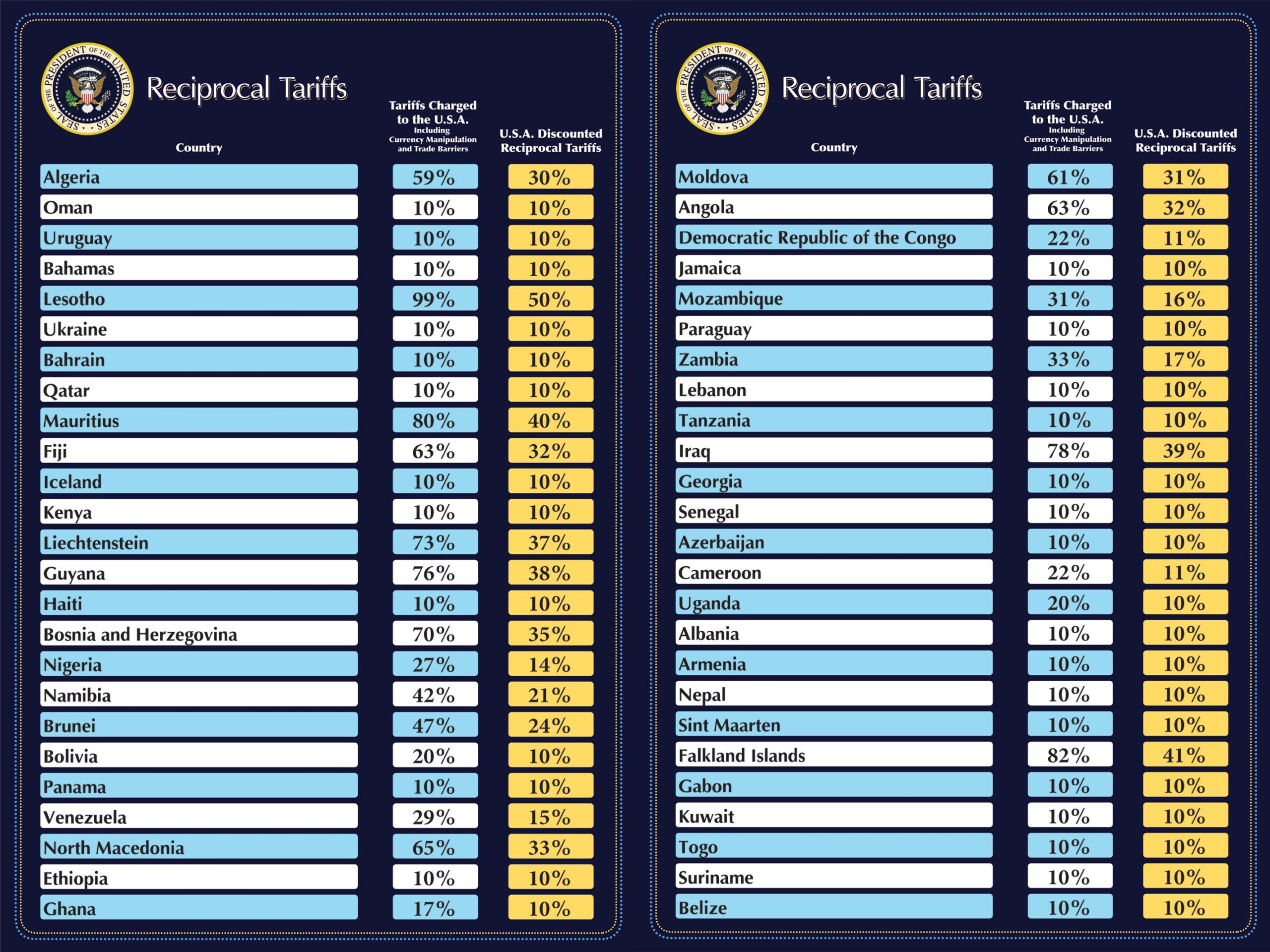U.S. President Donald Trump has announced a sweeping 10% universal tariff on all imported goods, alongside reciprocal tariffs on dozens of countries, including Uganda. The universal tariff will take effect on April 5, while the targeted reciprocal tariffs will begin on April 9.
Uganda, which currently imposes a 20% tariff on U.S. goods according to Washington, is among countries in the list that will face a 10% baseline tariff on its exports to the United States under the new measures.
The White House said the move is part of Trump’s broader effort to combat what he describes as unfair trade practices and currency manipulation by foreign governments.
“For decades, other countries have taken advantage of the United States with excessive tariffs, unfair subsidies, and currency devaluation,” Trump said in his announcement that he also branded “Liberation Day.”
“Those days are over. We will no longer tolerate policies that harm American workers and businesses.”

The tariffs were announced via executive order, bypassing congressional approval, and represent one of the most significant shifts in U.S. trade policy in decades. The White House released a list of nearly 100 countries and the tariff rates that would be imposed. In addition to the universal 10% tariff, roughly 60 countries, including Uganda, were singled out for additional levies based on their existing trade practices.
Economic and Global Reactions
The decision has sparked immediate reactions from economists, trade analysts, and business leaders. While Trump has insisted that the tariffs will bring jobs back to the U.S., critics argue that they will likely have the opposite effect—raising costs for American consumers and businesses while triggering retaliatory measures from affected nations.
Nigel Green, CEO of global financial advisory firm deVere Group, warned that the tariffs could slow economic growth and worsen inflation, which remains a concern in the U.S. economy.
“This is how you sabotage the world’s economic engine while claiming to supercharge it,” Green said. “These tariffs will push prices higher on thousands of everyday goods—from phones to food—fueling inflation at a time when it is already uncomfortably persistent.”
The U.S. Chamber of Commerce, a major business lobbying group, also criticized the move, arguing that tariffs amount to taxes on American consumers and could strain relationships with key trading partners.
Impact on Uganda and Africa
Uganda currently charges a 20% tariff on U.S. imports, a rate Washington deems excessive. While the 10% U.S. tariff on Ugandan exports is lower, it could still impact key sectors such as agriculture, textiles, and processed goods, which rely on access to the American market.
The tariffs also raise questions about the future of U.S.-Africa trade relations